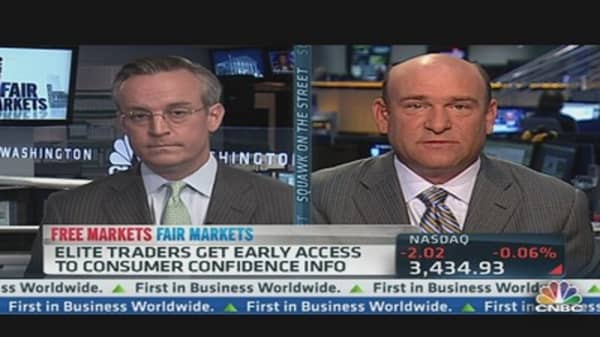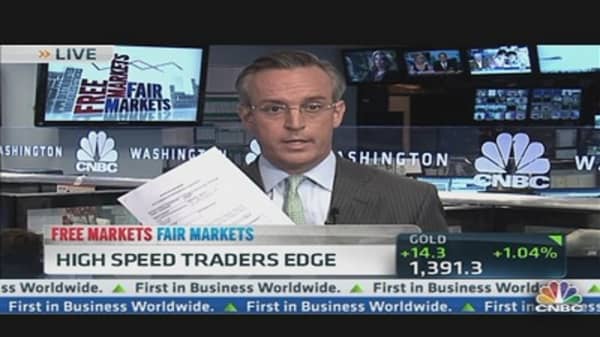Do our financial markets need a disclosure statement: Warning! This market rigged for the highest bidder?
The question arises with the revelation from my colleague Eamon Javers that an ultra-elite group of clients can pay for and receive the market-moving consumer sentiment data from the University of Michigan a full two seconds earlier than a broader set of paying clients and a full five minutes and two seconds before the general public.
If two seconds doesn't sound like a lot, consider that the industry standard today for executing trades is measured in milliseconds, or thousandths of a second. Add in the ability of computers to make the trades without human involvement, using programmed algorithms, and, as Javers said in his article, two seconds is an eternity.
(Read More: Thomson Reuters Gives Elite Traders Early Advantage)
The revelation comes when Wall Street firms are already paying the nation's stock exchanges considerable sums to locate the servers that execute their trades closer geographically to the exchanges' own servers that process the trades, sometimes across the street. This highlights how precious such milliseconds can be, reducing ever so slightly the distance electrons have to travel—electrons that are already traveling at the speed of light.
In one sense the ethical dilemma raised by the Michigan data is new; 10 years ago, no one thought at all about the possibility that a millisecond advantage offered any benefit. But in another sense, this issue is as old as the hills: another case where technology develops faster than a culture's moral framework.
On the face of it, there is nothing wrong with a private entity gathering data and selling it privately, or selling it first to the highest bidder. After all, a supermarket charges less for day-old bread, or, put another way, more for fresh bread.
The difference here is that a supermarket generally discloses that the bread is old, something the University of Michigan did not appear to make entirely clear, even though the two-second option could be found by digging around its website. Many of the economists I spoke with, all of whom have been covering the data for decades, did not know about this early release. If they didn't know, how much if anything did small traders and investors know? Probably nothing at all.
(Read More: US Consumer Sentiment Rallies to Six-Year High in May)





